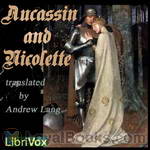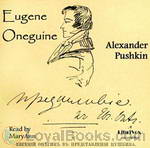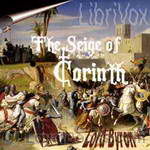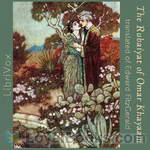|
Books Should Be Free Loyal Books Free Public Domain Audiobooks & eBook Downloads |
|
|
Books Should Be Free Loyal Books Free Public Domain Audiobooks & eBook Downloads |
|
Poetry |
|---|
|
Book type:
Sort by:
View by:
|
By: Unknown | |
|---|---|
 Humour of the North
Humour of the North
Some day an enterprising editor may find time to glean from the whole field of Canadian literature a representative collection of wit and humour. . . . The present little collection obviously makes no such ambitious claim. It embraces, however, what are believed to be representative examples of the work of some of our better-known writers, many of which will no doubt be quite familiar to Canadian readers, but perhaps none the less welcome on that account. | |
By: Various | |
|---|---|
 Vintage Verse Rhapsody A Poetry Collection
Vintage Verse Rhapsody A Poetry Collection
A collection of poetry selected and performed by Bob Gonzalez, rhapsode. Rhapsodes of Ancient Greece were “song-stitchers,” performing selections from the epics of Homer and Hesiod. The contemporary rhapsode performs the classical poetry of his or her language, culture, and tradition. Any particular collection and arrangement of poems for performance I term a “rhapsody.” In general terms, a rhapsody is an ecstatic expression of feeling and enthusiasm. In music, a rhapsody is an instrumental composition irregular in form and suggestive of improvisation... | |
By: Alexander Pope (1688-1744) | |
|---|---|
 The Rape of the Lock
The Rape of the Lock
The Rape of the Lock is a mock-heroic narrative poem written by Alexander Pope, first published anonymously in Lintot's Miscellany in May 1712 in two cantos (334 lines), but then revised, expanded and reissued under Pope's name on March 2, 1714, in a much-expanded 5-canto version (794 lines). The final form was available in 1717 with the addition of Clarissa's speech on good humour. The poem satirizes a petty squabble by comparing it to the epic world of the gods. It was based on an incident recounted by Pope's friend, John Caryll... | |
By: Unknown (750? BC - 650? BC) | |
|---|---|
 The Odyssey
The Odyssey
| |
By: James Allen (1864-1912) | |
|---|---|
 The Divine Companion
The Divine Companion
James Allen was a British philosophical writer known for his inspirational books and poetry and as a pioneer of the self-help movement.In the introduction Lily Allen writes: "It cannot be said of this book that James Allen wrote it at any particular time or in any one year, for he was engaged in it over many years and those who have eyes to see and hearts to understand will find in its pages the spiritual history of his life. It was his own wish that The Divine Companion should be the last manuscript of his to be published. 'It is the story of my soul,' he said, 'and should be read last of all my books, so that the student may understand and find my message in its pages.'" | |
By: Ludovico Ariosto (1474-1533) | |
|---|---|
 Orlando Furioso
Orlando Furioso
Charlemagne's nephew Orlando (AKA Roland) is driven insane by the infidelity of his beloved Angelica. Angelica's relationship with him and others loosely unifies multiple story lines to produce a rich tapestry of romance, fictionalized history, and pure fantasy. This romance-epic is a sequel to the less distinguished and unfinished romance Orlando Innamorato, by Mattteo Maria Boiardo. | |
By: William Shakespeare (1564-1616) | |
|---|---|
 The Rape of Lucrece
The Rape of Lucrece
The Rape of Lucrece (1594) is a narrative poem by William Shakespeare about the legendary Lucretia. Lucrece draws on the story described in both Ovid's Fasti and Livy's history of Rome. In 509 BC, Sextus Tarquinius, son of Tarquin, the king of Rome, raped Lucretia (Lucrece), wife of Collatinus, one of the king's aristocratic retainers. As a result, Lucrece committed suicide. Her body was paraded in the Roman Forum by the king's nephew. This incited a full-scale revolt against the Tarquins led by Lucius Junius Brutus, the banishment of the royal family, and the founding of the Roman republic. | |
By: Katherine Jewell Everts (d. after 1919) | |
|---|---|
 The Speaking Voice
The Speaking Voice
From the Preface of The Speaking Voice: principles of training simplified and condensed: "This book offers a method of voice training which is the result of a deliberate effort to simplify and condense, for general use, the principles which are fundamental to all recognized systems of vocal instruction. It contains practical directions accompanied by simple and fundamental exercises, first for the freeing of the voice and then for developing it when free."Parts I and II of the book comprise advice... | |
By: William Shakespeare (1564-1616) | |
|---|---|
 Venus and Adonis
Venus and Adonis
Venus and Adonis is Shakespeare's narrative poem about the love of the goddess Venus for the mortal youth Adonis, dedicated partly to his patron, the Earl of Southampton (thought by some to be the beautiful youth to which many of the Sonnets are addressed). The poem recounts Venus' attempts to woo Adonis, their passionate coupling, and Adonis' rejection of the goddess, to which she responds with jealousy, with tragic results. This recording features three different readers performing the narration, Venus, and Adonis. | |
By: Unknown (384 BC - 322 BC) | |
|---|---|
 The Poetics of Aristotle
The Poetics of Aristotle
| |
By: Various | |
|---|---|
 Public Domain Hymns - 01
Public Domain Hymns - 01
"Originally modeled on the Psalms and other poetic passages (commonly referred to as "canticles") in the Scriptures, Christian hymns are generally directed as praise and worship to the monotheistic God. Many refer to Jesus Christ either directly or indirectly. Since the earliest times, Christians have sung "psalms and hymns and spiritual songs", both in private devotions and in corporate worship (Matthew 26:30; 1 Cor 14:26; Ephesians 5:19; Colossians 3:16; James 5:13; cf. Revelation 5:8-10; Revelation 14:1-5)... | |
By: Unknown (43 BC - 18?) | |
|---|---|
 The Metamorphoses of Ovid Vol. I, Books I-VII
The Metamorphoses of Ovid Vol. I, Books I-VII
| |
By: G. K. Chesterton (1874-1936) | |
|---|---|
 A Chesterton Calendar
A Chesterton Calendar
Go through the year, day by day, with the wit and wisdom of G.K. Chesterton! Compiled from the writings of 'G.K.C', both in verse and in prose, each day of the year is provided with a generally short quotation from one of his many works. Also includes a section apart for the moveable feasts. | |
By: William Wordsworth | |
|---|---|
 The Excursion
The Excursion
The Excursion: Being a portion of The Recluse, a Poem is a long poem by Romantic poet William Wordsworth and was first published in 1814. It was intended to be the second part of The Recluse, an unfinished larger work that was also meant to include The Prelude, Wordsworth's other long poem, which was eventually published posthumously. The exact dates of its composition are unknown, but the first manuscript is generally dated as either September 1806 or December 1809. (Introduction by Wikipedia) | |
By: William Blake (1757-1827) | |
|---|---|
 Jerusalem - The Emanation of the Giant Albion
Jerusalem - The Emanation of the Giant Albion
The epic poem Jerusalem was in Blake's own opinion his masterpiece. It is the last of the great prophetic books. Originally produced as an engraved book of 100 pages (only one copy of which was every fully finished in the colouring), the poem develops and unifies many of the themes Blake had been exploring in earlier works. It is a complex and powerful work, full of dramatic imagery and sublime poetry. You might think of it like a poetic version of a Wagner opera. This is poetry as if your life depended on it... | |
By: Various | |
|---|---|
 The Night Before Christmas and Other Popular Stories For Children
The Night Before Christmas and Other Popular Stories For Children
| |
By: John Dryden (1631-1700) | |
|---|---|
 Absalom and Achitophel
Absalom and Achitophel
John Dryden published Absalom and Achitophel: A Poem in 1681. It is an elaborate historical allegory using the political situation faced by Kind David (2 Samuel 14-18) to mirror that faced by Charles II. Each monarch had a son whom a high-ranking minister attempted to use against him. James Scott, first Duke of Monmouth, Charles II's illegitimate son, was detected planning a rebellion late in 1681, supposedly instigated by the Earl of Shaftesbury, who was tried for high treason, and it is believed that Dryden wrote the poem in an effort to sway the jury in his trial... | |
By: Omar Khayyám (1048-1131) | |
|---|---|
 The Rubáiyát of Omar Khayyám
The Rubáiyát of Omar Khayyám
The Rubáiyát of Omar Khayyám (Persian: رباعیات عمر خیام) is the title that Edward FitzGerald gave to his translation of a selection of poems, originally written in Persian and of which there are about a thousand, attributed to Omar Khayyám (1048–1131), a Persian poet, mathematician and astronomer. A Persian ruba'i is a two-line stanza with two parts (or hemistechs) per line, hence the word "Rubáiyát" (derived from the Arabic root word for "four"), meaning "quatrains". (Introduction by Wikipedia) The three translations by women comprise this collection of recordings of the Rubaiyat of Omar Khayyam. | |
By: Anonymous | |
|---|---|
 The Ladies Delight
The Ladies Delight
| |
By: Francis William Bourdillon (1844-1912) | |
|---|---|
 Aucassin and Nicolette.
Aucassin and Nicolette.
Aucassin and Nicolette is a medieval romance written in a combination of prose and verse called a “song-story.” Created probably in the early 13th century by an unknown French author, the work deals with the love between the son of a count and a Saracen slave girl who has been converted to Christianity and adopted by a viscount. Since Aucassin’s father is strongly opposed to their marriage, the two lovers must endure imprisonment, flight, separation in foreign lands, and many other ordeals before their ardent love and fierce determination finally bring them back together... | |
By: Unknown (750? BC - 650? BC) | |
|---|---|
 The Odyssey of Homer
The Odyssey of Homer
| |
By: John Masefield (1878-1967) | |
|---|---|
 Selected Public Domain Poems
Selected Public Domain Poems
Maritime and metaphysical verse by John Masefield, English poet and author, Poet Laureate of the United Kingdom from 1930 until his death. | |
By: Alexander Pushkin (1799-1837) | |
|---|---|
 Eugene Onéguine
Eugene Onéguine
Eugene Onéguine is a classic of Russian literature, and its eponymous protagonist has served as the model for a number of Russian literary heroes (so-called superfluous men). It was published in serial form between 1825 and 1832. The first complete edition was published in 1833, and the currently accepted version is based on the 1837 publication.Almost the entire work is made up of 389 stanzas of iambic tetrameter with the unusual rhyme scheme "AbAbCCddEffEgg", where the uppercase letters represent feminine rhymes while the lowercase letters represent masculine rhymes... | |
By: Lord George Gordon Byron (1788-1824) | |
|---|---|
 The Siege of Corinth
The Siege of Corinth
In this moving poem, Byron recounts the final, desperate resistance of the Venetians on the day the Ottoman army stormed Acrocorinth: revealing the closing scenes of the conflict through the eyes of Lanciotto - a Venetian renegade fighting for the Ottomans - and Francesca - the beautiful maiden daughter of the governor of the Venetian garrison: Minotti. | |
By: Percy Bysshe Shelley (1792-1822) | |
|---|---|
 The Masque of Anarchy
The Masque of Anarchy
The Masque of Anarchy was Shelley's response to the Peterloo massacre at St Peter's Fields, Manchester, where 18 died and hundreds were injured, after Hussars charged into a rally for parliamentary reform. Written in Italy in 1819, the poem was not published until 1832, ten years after Shelley's death. This reading is from the first published edition with the addition of three words that were inserted in full only in later additions ('Eldon' in Stanza IV and 'Bible' and 'Sidmouth' in Stanza VI). The poem is preceded by Leigh Hunt's preface to the 1932 edition and followed by Harry Buxton Forman's 1887 lecture on the poem to the Shelley Society. | |
By: Imogen Clark | |
|---|---|
 Rhymed Receipts for Any Occasion
Rhymed Receipts for Any Occasion
In addition to being amusing, recipes written in a poetic form were easy to remember and used as learning tools for the young housekeeper. Many of the poems in this 1912 publication were originally published in Woman's Home Companion, Good Housekeeping Magazine, the Housewife, Table Talk, and the Boston Cooking School Magazine. | |
By: Amy Levy (1861-1889) | |
|---|---|
 A London Plane-Tree, and Other Verse
A London Plane-Tree, and Other Verse
Amy Levy was a British poet and novelist who is celebrated for her feminist positions and her engagement with homosexual romance during the Victorian era. Levy wrote stories, essays, and poems for periodicals, some popular and others literary. Her writing career began early; her poem "Ida Grey" appearing in the journal, The Pelican, when she was only fourteen. Her final book of poems, A London Plane-Tree And Other Verse (1889), contains lyrics that are among the first to show the influence of French symbolism. (Introduction excerpted from Wikipedia) | |
By: John Dryden (1631-1700) | |
|---|---|
 Dryden vs Shadwell - a Poetic Duel
Dryden vs Shadwell - a Poetic Duel
Throughout history there have been many creative artists whose fame depends largely on their association with a much greater artist. Such the case of Thomas Shadwell, poet and prolific writer of low brow comedies, who is today most famous as the butt of satire by one of greatest and most influential English poets, John Dryden. Shadwell and Dryden were at first colleagues and collaborators, but later fell out over some sharp divergences of opinion. In particular, Dryden disagreed with Shadwell's high estimation of Ben Jonson, and even more of the latter's claim to be be Jonson's artistic heir... | |
By: Omar Khayyam (1048-1131) | |
|---|---|
 The Rubaiyat of Omar Khayyám (Whinfield Translation)
The Rubaiyat of Omar Khayyám (Whinfield Translation)
Omar Khayyám (1048–1131) was a Persian poet, mathematician and astronomer. In the Western world he is most famous for his many rubáiyát (quatrains), a four line rhyming stanza, which were popularized in an extensively reworked collection in English by Edward Fitzgerald, the first edition of which appeared in 1859. However, Fitzgerald was neither the first nor the most scholarly of the translators of Omar Khayyam’s rubáiyát. As well as translating the poems of Hafez and Rumi, Edward Henry Whinfield (1836-1922) also produced a much more extensive English version of the rubáiyát... | |
By: George F. Dillon (1836-1893) | |
|---|---|
 Song Celestial; Or, Bhagavad-Gîtâ
Song Celestial; Or, Bhagavad-Gîtâ
| |
By: William Butler Yeats (1865-1939) | |
|---|---|
 Crossways
Crossways
The first collection by Irish-born poet William Butler Yeats. Many decades before his mysterious and austere Modernist verse earned him a nobel prize, Yeats achieved renown as one of the last major poets in the High Romantic tradition. These poems showcase his Celtic imagination, his love for Irish folk-tales, and his commitment to the Romantic ideal of love. | |
By: Unknown (750? BC - 650? BC) | |
|---|---|
 The Odyssey Done into English prose
The Odyssey Done into English prose
| |